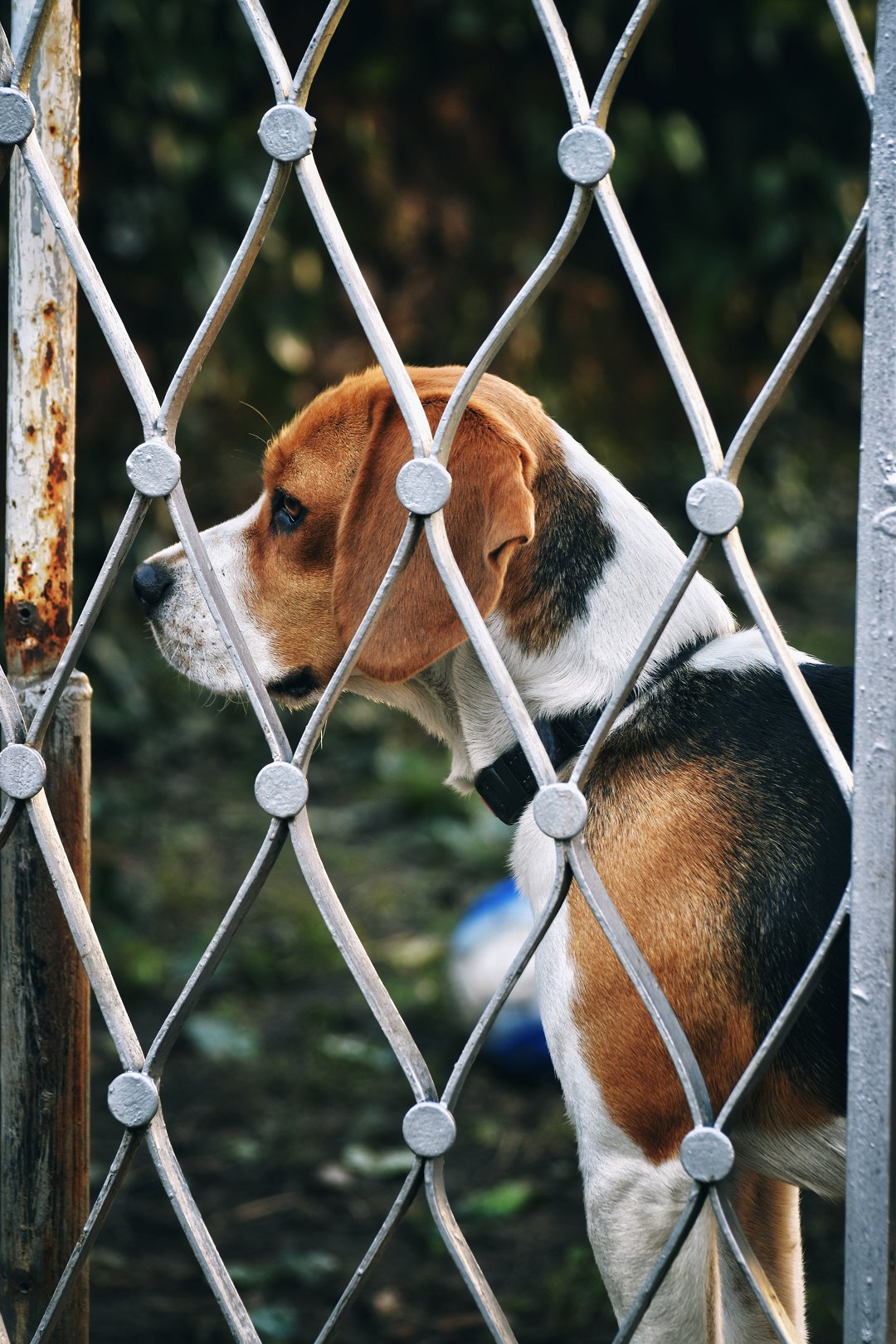Table of Contents
- 1 Introduction: Unleashing Your Beagle’s Potential: A Guide to Search and Rescue Training
- 2 From Paws to Heroes: How to Train Your Beagle for Search and Rescue Missions
- 3 Mastering the Art of Search and Rescue: Training Your Beagle for Lifesaving Purposes
- 4 FAQs About: How to Get Your Beagle into Search and Rescue Training
- 4.1 Can any Beagle be trained for search and rescue missions?
- 4.2 What are the basic requirements for search and rescue training for Beagles?
- 4.3 Are there any specific organizations that offer search and rescue training for Beagles?
- 4.4 Can I train my Beagle for search and rescue on my own, or do I need professional help?
- 4.5 What are some important tips for successful search and rescue training for Beagles?
- 4.6 Are there any additional resources available for Beagle search and rescue training?
Introduction: Unleashing Your Beagle’s Potential: A Guide to Search and Rescue Training
Are you a proud owner of a Beagle and wondering how to get your furry friend into search and rescue training? Look no further! In this comprehensive guide, we will explore the world of search and rescue training for Beagles and equip you with all the information you need to unleash their potential.
Search and rescue training is an incredible opportunity to channel your Beagle’s innate instincts and intelligence into a purposeful and lifesaving mission. Not only will it provide mental and physical stimulation for your furry companion, but it will also allow them to become a true hero in times of need. So, let’s dive into the world of search and rescue training for Beagles and discover the steps, techniques, and resources that will pave the way for your Beagle’s successful training journey.
From Paws to Heroes: How to Train Your Beagle for Search and Rescue Missions
Training your beagle for search and rescue missions can be a rewarding and fulfilling experience. With their keen sense of smell and natural curiosity, beagles are well-suited for this type of work. Here are some steps to help you get started on this exciting journey:
1. Research and Understand the Training Process
Before diving into search and rescue training, it’s important to familiarize yourself with the process and requirements. Look for reputable search and rescue training organizations or courses that specialize in training beagles. These organizations can provide valuable resources, guidance, and certification programs to ensure your beagle is properly trained.
2. Establish Basic Obedience Training
Before your beagle can become a search and rescue hero, they need to have a solid foundation of basic obedience training. This includes commands such as sit, stay, come, and heel. Obedience training is crucial for effective communication and control during search and rescue missions.
3. Introduce Scent Detection Training
Beagles have an exceptional sense of smell, making them ideal for scent detection tasks. Start by introducing your beagle to different scents, such as essential oils or specific search and rescue training aids. Gradually increase the difficulty level by hiding the scent in various locations and encouraging your beagle to find it.
4. Simulate Real-Life Search Scenarios
To prepare your beagle for real-life search and rescue missions, it’s important to simulate different scenarios. Set up mock search scenarios in various environments, such as forests, urban areas, or disaster zones. This will help your beagle adapt to different terrains and situations they may encounter during actual missions.
5. Join a Search and Rescue Team
Once your beagle has undergone extensive training and is ready for real-life missions, consider joining a search and rescue team. These teams often work closely with law enforcement agencies and emergency responders to locate missing persons or provide assistance during disasters. Being part of a team will provide ongoing training opportunities and support for you and your beagle.
By following these steps and investing time and effort into training, you can turn your beagle into a search and rescue hero. Remember to be patient and consistent throughout the training process, as it may take time for your beagle to fully grasp the necessary skills. With dedication and the right training program, your beagle can make a significant impact in search and rescue efforts.
Next, we will explore the art of mastering search and rescue training, including advanced techniques and resources to further enhance your beagle’s abilities in lifesaving missions.
Mastering the Art of Search and Rescue: Training Your Beagle for Lifesaving Purposes
When it comes to search and rescue missions, beagles have proven to be invaluable assets. Their keen sense of smell and determination make them excellent candidates for this type of training. If you’re wondering how to get your beagle into search and rescue training, here are some tips and techniques to help you get started.
1. Research search and rescue training programs
Before diving into training, it’s important to do your homework and find a reputable search and rescue training program for beagles. Look for programs that have a strong track record and positive reviews from other beagle owners. Some organizations even offer certification for beagle search and rescue teams, which can add credibility to your training efforts.
2. Enroll in search and rescue training courses
Once you’ve found a suitable program, enroll your beagle in search and rescue training classes. These courses are designed to teach both you and your dog the necessary skills and techniques for search and rescue missions. From basic obedience training to advanced scent detection exercises, these courses cover all aspects of search and rescue training for beagles.
3. Find a qualified search and rescue handler trainer
To ensure the success of your beagle’s training, it’s crucial to work with a qualified search and rescue handler trainer. These professionals have extensive experience in training search and rescue dogs and can provide valuable guidance and support throughout the process. They can help you fine-tune your training techniques and address any challenges that may arise.
4. Join search and rescue training organizations
Being part of a search and rescue training organization can provide you and your beagle with additional resources and opportunities for training. These organizations often hold regular training sessions, workshops, and seminars that can enhance your skills and knowledge in search and rescue techniques. They also offer a supportive community of like-minded individuals who share a passion for search and rescue missions.
5. Utilize search and rescue training resources
In addition to formal training programs and organizations, there are plenty of resources available to help you in your search and rescue training journey. Books, online forums, and videos can provide valuable insights and tips on how to train your beagle for search and rescue missions. These resources can supplement your formal training and help you stay up to date with the latest techniques and best practices.
By following these steps and utilizing the available resources, you can master the art of search and rescue training for your beagle. Remember, patience and consistency are key, as it takes time for your beagle to develop the necessary skills and instincts for lifesaving purposes. With dedication and proper training, your beagle can become a hero in search and rescue missions.
FAQs About: How to Get Your Beagle into Search and Rescue Training
Can any Beagle be trained for search and rescue missions?
Yes, any Beagle can be trained for search and rescue missions. However, it is important to note that not all Beagles may possess the necessary traits and abilities required for this type of work. It is recommended to assess your Beagle’s temperament, drive, and physical capabilities before embarking on search and rescue training.
What are the basic requirements for search and rescue training for Beagles?
The basic requirements for search and rescue training for Beagles include a strong desire to work, good physical fitness, and the ability to focus and follow commands. Additionally, it is beneficial for Beagles to have a keen sense of smell and the ability to track scents effectively.
Are there any specific organizations that offer search and rescue training for Beagles?
Yes, there are several organizations that offer search and rescue training for Beagles. Some well-known organizations include the National Search Dog Alliance and the American Rescue Dog Association. These organizations provide comprehensive training programs and certifications for Beagles and their handlers.
Can I train my Beagle for search and rescue on my own, or do I need professional help?
While it is possible to train your Beagle for search and rescue on your own, it is highly recommended to seek professional help. Professional trainers have the expertise and experience to guide you and your Beagle through the training process effectively. They can also provide valuable insights and techniques to enhance your Beagle’s search and rescue abilities.
What are some important tips for successful search and rescue training for Beagles?
- Start training your Beagle from a young age to establish good habits and behaviors.
- Use positive reinforcement techniques, such as treats and praise, to motivate and reward your Beagle during training sessions.
- Gradually increase the difficulty of training exercises to challenge your Beagle and promote growth.
- Incorporate scent detection games and exercises to enhance your Beagle’s tracking abilities.
- Maintain a consistent training schedule and be patient with your Beagle’s progress.
Are there any additional resources available for Beagle search and rescue training?
Yes, there are various resources available for Beagle search and rescue training. Online platforms, such as forums and websites dedicated to search and rescue training, provide valuable information, tips, and techniques. Additionally, books and training guides specifically focused on search and rescue training for Beagles can be beneficial resources to enhance your knowledge and training approach.






Leave a Reply